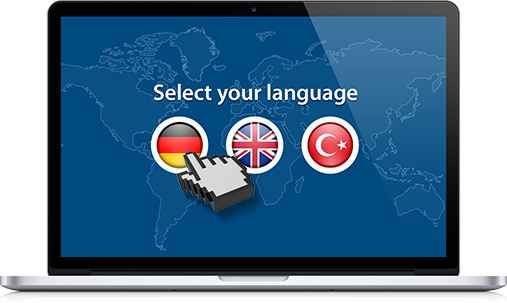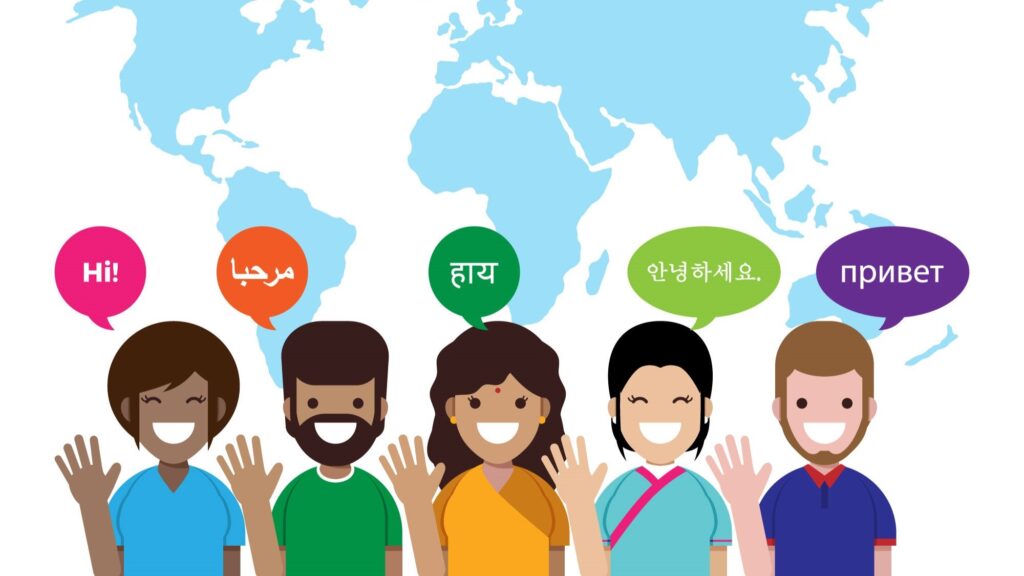Connect Better, Convert Faster – with VerboLabs
In today’s global marketplace, having a website isn’t enough—you need a localized website that resonates with your target audience, wherever they are. Website localization goes beyond just translating words; it’s about adapting your content, visuals, and user experience to fit the cultural expectations of each region.
Let’s explore why website localization is essential and how VerboLabs can help your business go global, the right way.

What Is Website Localization?
Website localization is the process of adapting your website not just linguistically, but also culturally and functionally for a specific target market. It includes:
- Translating content to the local language
- Adapting currency, date/time formats, and measurements
- Adjusting images and colors for cultural relevance
- Tailoring the user interface to local browsing habits
Example:
Coca-Cola’s website in the U.S. features vibrant red visuals and festive branding. In Japan, it emphasizes minimalist design and harmony, aligning with Japanese aesthetics. It’s the same brand, but localized to resonate with the local culture.
Why Website Localization Matters

1. Expand Your Global Reach
2. Build Trust and Credibility
3. Improve User Experience
4. Boost Conversions and Sales
5. Improve SEO in Local Markets
1. Expand Your Global Reach
A localized website helps you enter new markets seamlessly. With 75% of internet users preferring to shop in their native language, localization can dramatically improve your reach.
Example:
E-commerce giant ASOS localized its website for several regions including France, Germany, and India. The result? A 39% increase in international sales within a year.
2. Build Trust and Credibility
People trust what they understand. A website in the visitor’s native language creates a sense of familiarity and professionalism.
VerboLabs in Action:
One of our clients—a global ed-tech platform—saw a 40% rise in engagement from Latin American users after we localized their platform into Spanish with culturally relevant visuals and terminology.
3. Improve User Experience
Localization ensures that your website’s content, design, and functionality align with local expectations. From faster loading times to native idioms, it removes friction in the user journey.
Example:
When Airbnb localized its website for China, it modified navigation behavior, added WeChat login, and introduced region-specific listings. This made the platform more intuitive for Chinese users and improved booking rates.
4. Boost Conversions and Sales
A localized website speaks your customer’s language—literally and emotionally. This dramatically improves conversion rates.
VerboLabs Success Story:
An Indian skincare brand expanded into the UAE. After partnering with VerboLabs to localize their website into Arabic—including culturally appropriate imagery and region-specific product descriptions—they saw a 60% increase in online purchases from the Gulf region in just 3 months.
5. Improve SEO in Local Markets
Localization improves your website’s visibility on local search engines by targeting relevant keywords in the user’s language.
Example:
When Shopify localized its website and support pages in multiple languages, it experienced higher search rankings and gained substantial traction in non-English-speaking countries.
Industries That Must Invest in Website Localization
Website localization is not a luxury—it’s a necessity for:
- E-commerce: Product pages, checkout processes, and support content
- Education & E-learning: Course materials, enrollment forms, certification info
- SaaS and Tech: UI/UX, tutorials, help centers
- Healthcare: Patient portals, medical information, appointment booking
- Travel & Tourism: Booking engines, guides, cultural tips
If you’re in these sectors, localization will dramatically impact user engagement and ROI.
Website Localization vs. Simple Translation
| Translation | Localization |
| Word-for-word language change | Cultural and contextual adaptation |
| Focuses on text | Focuses on overall experience |
| One-size-fits-all | Tailored to region |
Translation alone won’t cut it. Only localization ensures the user truly connects with your brand. At VerboLabs, we ensure every touchpoint on your site feels native to your target audience.
How VerboLabs Can Help
At VerboLabs, we provide end-to-end website localization services for over 120 languages. Here’s what sets us apart:
✅ Native linguists with subject matter expertise
✅ Cultural consultants who ensure your content hits the right tone
✅ In-house tech team for seamless website integration
✅ Track record of increasing conversions, engagement, and customer satisfaction
Whether you’re expanding into Europe, Asia, or the Middle East—we’ve done it before, and we’ll do it for you.

Get Started Today
Don’t let language and culture be a barrier to your growth. Make your brand truly global with VerboLabs.
Ready to localize your website?
Contact VerboLabs today for a free website localization audit and see how we can help you grow internationally—faster and smarter.
FAQs
Website translation is the direct conversion of text from one language to another. Localization goes a step further—it adapts your website content, design, images, currency, and overall user experience to match the culture and preferences of your target audience. VerboLabs specializes in full-scale localization that helps you truly connect with global users.
Over 70% of global consumers prefer content in their native language. A localized website builds trust, improves user engagement, and significantly boosts conversion rates in international markets. VerboLabs helps you unlock new regions with tailored localization services.
Website localization is essential for industries like:
– E-commerce
– Ed-tech and e-learning
– SaaS and technology
– Healthcare
– Travel and hospitality
If you’re planning international expansion, localization with VerboLabs will ensure your message lands right.
VerboLabs offers website localization in 120+ languages, including regional dialects. Whether you need Arabic for the UAE or Japanese for a gaming platform, we have native experts to handle it.
Timelines vary based on website size, number of languages, and technical needs. A standard business website typically takes 2 to 4 weeks. VerboLabs provides a tailored timeline after assessing your specific requirements.
Yes! We don’t just localize content—we also optimize it for local search engines. That includes localized keywords, meta descriptions, and content structure to help your website rank better in your target region.
We provide ongoing support, including updates, content maintenance, and localized content audits to ensure your website continues performing well across all regions.
Think of localization as an investment, not a cost. The ROI from entering a new market with a tailored user experience often outweighs the initial investment. VerboLabs offers flexible pricing plans to suit businesses of all sizes.
Absolutely. Our tech team can work with your CMS or web platform to ensure a smooth integration of localized content—no extra hassle on your end.


